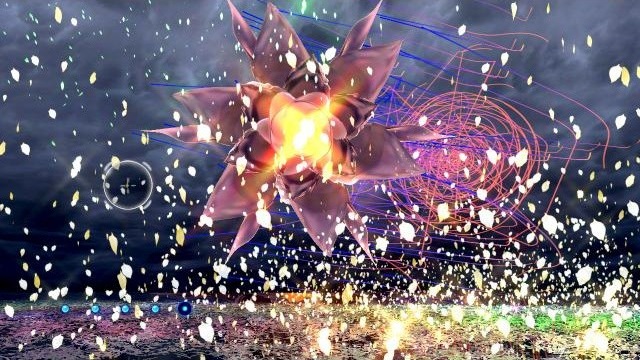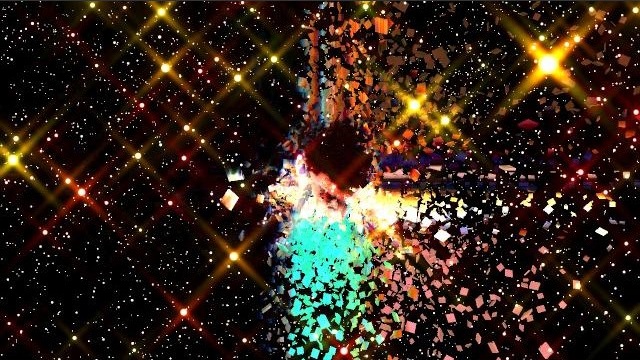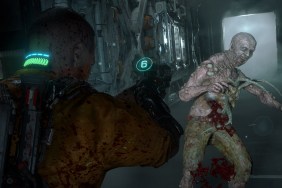But the landslide brought me down.
Child of Eden is a game that should not be talked about like a game. Sure, it's a rail-shooter, a spiritual successor to Rez, with optional Kinect controls where the objective is to shoot down enemies, collect stars to unlock levels and artwork, and rescue a digital girl named Lumi who lives in the Eden network from an unknown virus. I can comprehensively criticize how it's too short for $50, how it doesn't have a multiplayer mode, how the octo-lock should have been able to shoot down purple bullets that are vulnerable only to the new rapid-fire Tracer, and how the purple bullets can occasionally be off-camera or obscured by objects that are red-purple or blue-purple.
But that is not what game designer Tetsuya Mizuguchi really cares about, nor what he intends. Every word describing the game's mechanics is relatively unimportant. So forget everything I just said, and remember instead that though words will never perfectly express the seamless blend between music and graphics on screen, this is as close as I can get. Everything I feel about Child of Eden can be framed by its opening cut-scene.
I awaken from my eternal slumber, my senses alive for the very first time, to the sky, the garden, the horizon in between. I do not know the meaning, of life or paradise, but as I gaze upon the world, I begin to understand. I smile and stray. I wonder and delay. I view my reflection in a puddle by my feet, and kneel with curiosity, before a silent surprise. I see the earth in ripples, the edges of the archive, and upon a moment's glance, it comes to me.
I feel the pulse of an acoustic tunnel. Ribbons of space swarm through my body with chorded momentum. I drift through a rhythmic trance, drawn by a invisible string that pulls me into a synaptic, silvery, spectral stream – a slithering euphoria dusted with the whirring grains of a kaleidoscope. I hover incandescently like a supernal star whose light vibrates with every bullet staccato and fluttering note. Photoelectric to its very core, the universe glimmers and shines like Las Vegas at night before its innocence is stripped and bottled in neon.

The viral spreads of enemies are but bioluminescent organisms in an aquarium of pitch, of jellyfish echoes, fishy arpeggios, and the reverberating murmurs of whales. They coalesce into a layered floral arrangement, musically too, like an array of tone colors organized by wonder and serendipity. From the prismatic fire of the phoenix to the gravity of spherical twins, the system twirls with the creation of a supernova. Purification is the tune of the merry, it seems, and I have become its beloved piper.
Down the harmonious slide I go, through butterfly chimes and clairvoyant shrills. The rapturing composition rattles my being with the tremors of an amplified strum. Fragments of nirvana assemble with platonic force and, in an instant, I synchronize. I hear the phrasing of the most cosmic resonance, the celestial beats per minute. I realize freedom, its undulating gravity along the center of the masses, the boundaries lost to the boundless music of my imagination.
But then I blink, and I sense the corruption. I am finished all too soon.
-
Synesthesia
-
Magical and special
-
Strong Kinect controls
-
Replayable but much too short for $50
-
Can't lock onto bullets with octo-lock







